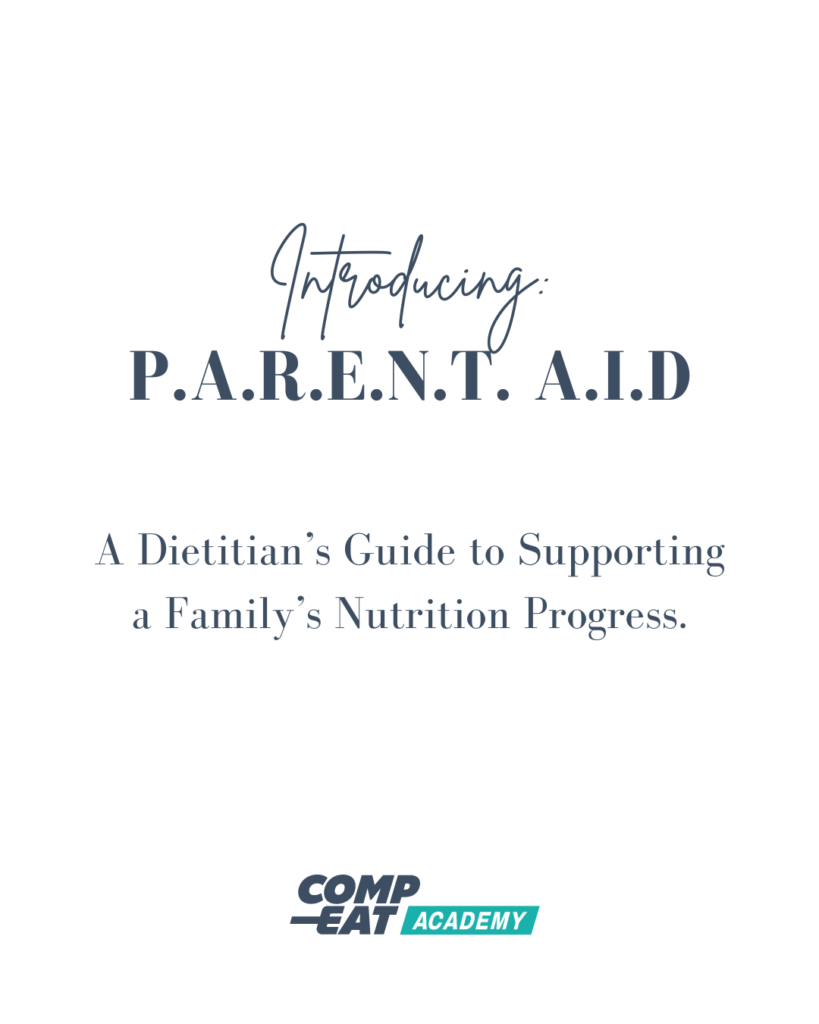A Dietitian’s Guide to Supporting Family Nutrition
As a dietitian or nutritionist, you’re well aware of the critical role parents and guardians play in shaping their family’s eating habits and overall nutrition. However, when it comes to family nutrition, supporting caregivers effectively requires more than just dispensing dietary advice or regurgitating science—it necessitates building and nurturing strong rapport, especially when you might not have firsthand experience as a parent (like me!).
If you’re like me, you’ve often felt stressed about how to strengthen the partnership with parents to optimize their experience and tried multiple different avenues of approach. Along this journey, I’ve learnt that building rapport and guiding families towards healthier eating habits is not just about having parental experience; it’s about demonstrating empathy, active listening, and providing personalized support that allows parents/guardians to feel heard and validated. This is where the P.A.R.E.N.T A.I.D framework comes in.
By employing these strategies, you can foster a supportive and collaborative relationship with parents, even if you don’t have firsthand experience as a parent/guardian yourself. Remember, building rapport is not about having all the answers—it’s about creating a safe and supportive environment where parents feel empowered to make positive changes for their families’ health and well-being.

Apply P.A.R.E.N.T. A.I.D. framework
P – Partnership: Foster a collaborative partnership with parents, acknowledging their expertise, lived experience and place them in the driving seat of the decision-making.
A – Active Listening: Practice active listening by attentively listening to parents’ concerns and reflecting their experiences to demonstrate you’ve understood and heard them.
R – Respect and Empathy: Show respect for parents’ choices and empathize with their challenges and goals.
E – Education and Resources: Ask permission to provide relevant education and resources to empower parents to make informed decisions about their family’s nutrition.
N – Non-judgmental Support: Offer non-judgmental support and flexibility, recognizing that dietary changes take time and effort.
T – Tailored Recommendations: Offer personalized recommendations and solutions that align with the unique needs and circumstances of each family.
A – Ask Open-ended Questions: Encourage open dialogue by asking open-ended questions and inviting parents to share their thoughts and experiences.
I – Inspire and Celebrate: Inspire parents by celebrating their successes, no matter how small, and motivating continued progress towards their goals.
D – Dynamic development: Commit to continuous learning and growth, acknowledging the ever-changing nature of each situation and also the research. Seek feedback and opportunities for professional development to enhance your rapport-building skills.
By applying the framework of P.A.R.E.N.T. A.I.D., we can effectively support parents and guardians in feeding their families, even without firsthand experience as parents ourselves.
Want To Learn More About Family Nutrition?
🍼 Join the Compeat Academy and unlock the ‘Feeding the Family’ course today! 🍎 Gain essential skills to navigate the complexities of family nutrition including:
- Understanding the unique nutritional needs of developmental stages, from newborns through to adolescents.
- Delving deeper into how to foster healthy relationships with food
- How to nurture and promote positive language body inclusivity and positivity.
💪 Join us and become a catalyst for change in family health! 🌱



